As online streaming replaces screenings dozens of Arab films are free to watch online whether released by individual filmmakers, companies or institutions. One notable initiative is Screens and Streams: Films and Music Online by the Arab Fund for Arts and Culture (AFAC), which “in view of maximizing reach and circumventing limitations to physical cultural broadcasting dictated by confinement and social distancing” provides online music streams as well as Arab films produced in 2011-16, making each available for seven days.
The first week’s programme includes 20 tracks from 10 albums and five films, three of which are shorts: the Egyptian Mohammad Shawky Hassan’s documentary And on a Different Note (2015), the Egyptian Salma El Tarzi’s music documentary Underground/On the Surface (2013), and the Lebanese Chadi Aoun’s animation Silence (2016).
The two long films are the Lebanese artist-filmmaker Rania Stephan’s experimental The Three Disappearances of Soad Hosni (2011, nominated for the best documentary award at the 2012 Chicago International Film Festival), and the Egyptian director Ahmed Nour’s Waves (2012), another experimental piece that combines archival imagery with live footage and animation to tell the story of Suez, Nour’s hometown, which won the Cinema in Motion Award at the 2012 San Sebastián International Film Festival and the Jury Prize for best sound at the 2015 Moscow International Documentary Film Festival DOKer and was nominated for best documentary feature at the 2014 Carthage Film Festival and the Muhr Arab Award for best documentary at the 2013 Dubai International Film Festival.
Through its Facebook page, Zawya Art House provides a similar service under the slogan “Stay Home and Watch”, making dozens of films available at a time through links. Current offerings include Zelal (2010), a long documentary by Marianne Khoury and Mustapha Hasnaoui which won the FIPRESCI Prize at the Dubai International Film Festival and was nominated for the Venice Horizons Award.
Also produced by Misr International Films production house (co-headed by Khoury, who is also the co-founder of Zawya) is the Egyptian filmmaker Dina Hamza’s documentary The Past Will Return (2015), which tells the story of the filmmaker’s late father, the renowned lyricist Mohamed Hamza; it won the Radwan Al-Kashef award for best artistic achievement at the 2012 Luxor African Film Festival. Another film Zawya is offering is the Lebanese director Eliane El Raheb’s Those Who Remain (2016), a documentary about a 60-year-old Christian farmer struggling to hold onto his land in picturesque Akkar.
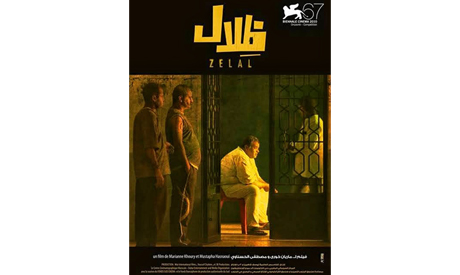
The Cairo premiere of Those Who Remain took place during the Zawya-managed Cairo Cinema Days (that is why Zawya is promoting the film even though it is Raheb who made it available). Another such film is the Lebanese director Hady Zaccak’s 104 Wrinkles (2017), the 2018 best cinematography Lebanese Movie Award winner in which the filmmaker documents his grandmother Henriette crossing the centenarian milestone and reaching the age of 104.
A third film on Zawya’s list, made available by its Egyptian director (who won three 2018 Cairo International Film Festival awards for the related Poisonous Roses) is Ahmed Fawzy Saleh’s debut short documentary Live Skin (2010, which won awards at the Abu Dhabi Film Festival, the Luxor African Film Festival and the Tetouan International Mediterranean Film Festival).
The Palestinian Film Platform, launched by filmmakers and institutions, features a Palestinian director every week. It opened on 1 April with Dégradé (2015), a feature film by Tarzan and Arab Nasser that was nominated for the Critics Week Grand Prize at the Cannes Film Festival and the Discovery Award at Toronto International Film Festival in 2015. It won the best film award at the Athens International Film Festival 2015.
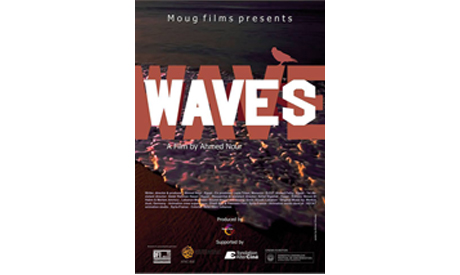
The Lebanese house Abbout Productions, founded Joana Hadjithomas and Khalil Joreige in 1998 with the remit “to produce feature and documentary films and to supports Arabic-language movies with a distinctly Arab voice, expressing the identity of the region” streams a new film every three days. The list includes Trêve: A Time To Rest (2013), a documentary by Myriam Hage, One of These Days (2017), a fiction film by Nadim Tabet, the sound artist and filmmaker Rana Eid’s debut Panoptic (2017, nominated for the best film award at Signs of Life Section in Locarno International Film Festival), and Lebanon Factory, an anthology film containing four sections by eight Lebanese and international filmmakers including Shirin Abushaqra, Mounia Akl, Ahmad Ghossein and Rami Kodeih.
The initiative also includes two films by and about Lebanese legend Georges Nasser (1927-2019): Ila Ayn (Towards the Unknown, 1957), the first film to represent Lebanon in the official competition at the Cannes Film Festival, and Un certain Nasser (2017), a documentary by Badih Massaad and Antoine Waked that won the Salah Abu Seif Award Special Jury Award at the 2017 Cairo International Film Festival.
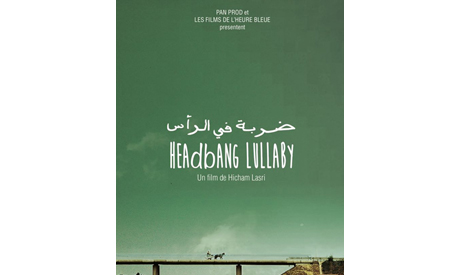
The Egyptian production house Red Star is streaming its debut, Hala Khalil’s Nawara (2015) starring Menna Shalaby, Mahmoud Hemeida and Shereen Reda, which won four awards at the 2017 Cairo International Film Festival. Led by Beirut DC, a group of filmmakers and institutions are offering “some of the best, most thought-provoking and independently minded works of contemporary Arab cinema” under the title Aflamuna (Our Films), with a new selection every fortnight. It opened with Hala Lotfy’s Coming Forth by Day (2012), which won the best director award at the Abu Dhabi Film Festival. The selection also includes One of These Days (2017) by the Lebanese filmmaker Nadim Tabet, and Martyr (2017) by the Lebanese filmmaker Mazen Khaled, which was nominated for the Queer Lion Award at the 2017 Venice Film Festival.
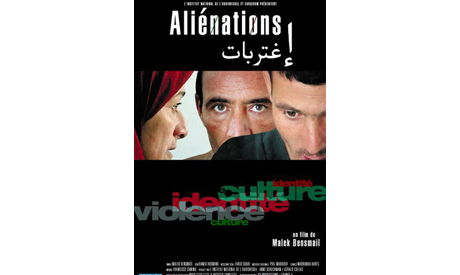
Twenty-Eight Nights and a Poem (2015) by the Lebanese director Akram Zaatari, the winner of a Special Mention at the 2015 Berlin International Film Festival, is also on the streaming list. So is Semaan Bil Day’ia (The One-Man Village, 2008), a long documentary by the Lebanese director Simon El Habre which won the Muhr Arab Special Jury Prize at the Dubai International Film Festival and the Best International Documentary Award at the 2009 Hot Docs Canadian International Documentary Festival. The short film selection includes Before I Forget by the Egyptian director Mariam Mekiwi, Face A/Face B by the Lebanese director Rabih Mroué, and Cleaning Schaerbeek by Farah Kassem.
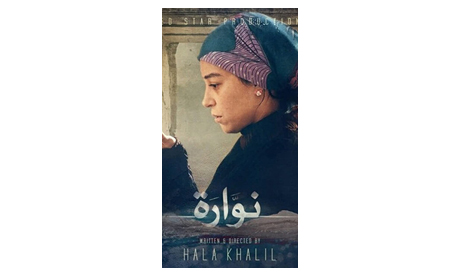
Through its own “Cinema at Your Home” initiative, the Syrian National Film Organisation, which is the main film producer in Syria, is offering Sky’s Road (2017) by the prolific Syrian director Joud Saeed, SOLO STEREO (2018) by Abelatif Abdel Hamid, and The Confession by Basel Al Khatib. For its part the Cairo International Film Festival (CIFF) has made available its documentary on the life and work of the late film critic Youssef Cherif Rizkallah who was for many years until his death in 2019 the artistic Director of Cairo Festival. Directed by Abdelrahman Nasr, it premiered in CIFF’s last round.
Arsenal Berlin, the Institute for Film and Video Art, an independent Berlin-based film institute promoting cultural diversity through cinema by showing over 1000 films every year, launched its virtual programme Arsenal 3. “We may no longer be able to make use of our physical premises,” the press release said, “but cinema is also a social space.” There will be up to 13 titles every week including many Arab films such as In the Last Days of the City (2016) by the Egyptian filmmaker Tamer El Said, Letter to a Friend (2019) by the Palestinian filmmaker Emily Jacir, and Coming Forth by Day (2012) by Hala Lotfy. The first week’s list also includes three short films by Ibrahim Shaddad, one of the pioneers of Sudanese filmmaking.: The Rope (1985), A Camel (1981), and Hunting Party (1964).
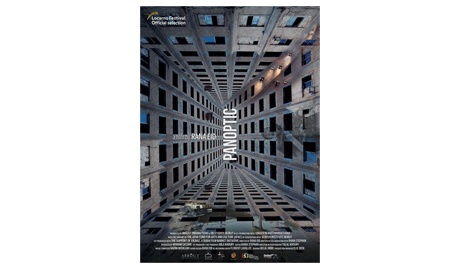
Individual filmmakers offering their work include the Moroccan Hicham Lasri (Headbang Lullaby, 2017), the Algerian Malek Bensmaïl (Aliénations, 2004), the Palestinian Mahdi Fleifel (A World Not Ours, 2012, which won over 28 awards including Berlin’s 2013 Peace Film Award), the PalestinianKamal Aljafari (entire filmography), the Palestinian Nasri Hajjaj (Shadow of Absence, 2007, which won the Bronze Muhr Award for the best documentary at the 2007 Dubai International Film Festival), the Syrian Ziad Kalthoum (The Immortal Sergean, 2014, nominated for best documentary at Locarno and Torino), the Egyptian Saad Hendawy (Aziza’s Prayers, 2012, nominated for best documentary at Dubai and Private File, 2008, nominated for the Muhr Arab Award at Dubai), the Moroccan Hakim Belabbes (Sweet Rain, 2017), the Egyptian Ahmed Rashwan (Coptic Island, 2014 and Basra, 2008, the winner of the best screenplay award CIFF).
*A version of this article appears in print in the 9 April, 2020 edition of Al-Ahram Weekly
Short link: